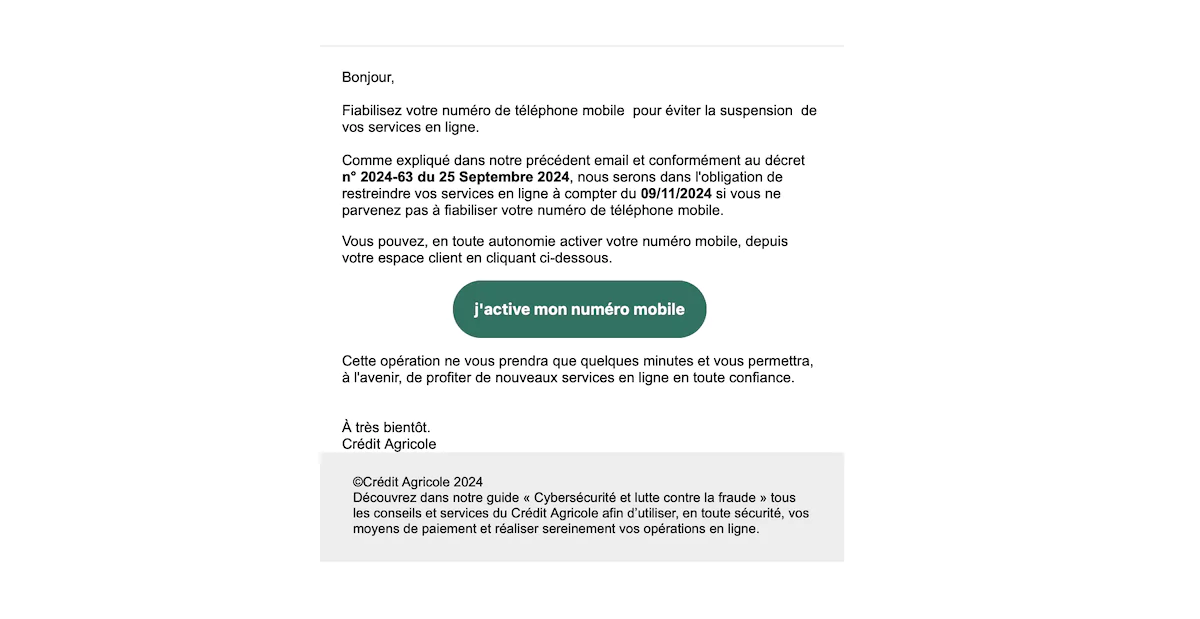Clients of Société Générale, Crédit Agricole, and Crédit Mutuel are being cautioned against a new phishing email scam that could compromise their personal and banking information. Here’s what it looks like.
Customers of three major banks in France – Société Générale, Crédit Agricole, and Crédit Mutuel – are advised to be vigilant following reports of a phishing scam targeting their online accounts. Since early November, clients have been receiving fraudulent emails claiming to provide important account messages, luring recipients to click a link that mimics a legitimate bank login page.
The scam involves an email that suggests the recipient has received a new message in their banking portal. Once clicked, the link redirects to a page resembling the bank’s official login site, asking customers to enter sensitive information such as their account credentials, name, and address. After this step, a confirmation page appears, stating that a bank advisor will contact them soon, adding to the false sense of authenticity by linking to the bank’s real website. However, the damage is already done if the victim has entered their details, as scammers can then use this information to access bank accounts, authorise transactions, or withdraw funds without the account holder’s knowledge.

How to stay safe from phishing scams
Banking customers are advised to take several precautionary steps to avoid falling victim to this scam. Firstly, they should be cautious of unsolicited emails, especially those that request sensitive information or prompt recipients to click on a link. In cases like these, always go directly to the official bank website by manually entering the URL into the browser instead of clicking any links provided.
Additionally, there are some tell-tale signs that the emails and websites associated with the scam are fraudulent. For instance, the fake website linked in the scam email displays a Spanish domain suffix ‘.es’ rather than France’s ‘.fr’. The scam emails also originate from a suspicious address containing the term “hotam-ovdim,” which is not associated with any legitimate French bank. Clients are encouraged to compare suspicious emails to previous genuine correspondence from their banks, paying close attention to sender information and language.
Victims of phishing scams are advised to report any suspicious emails to the French website Signal Spam and to contact their bank immediately if they believe their details have been compromised. Taking swift action to limit account access can help prevent potential losses and secure account information.
Monaco Life is produced by real multi-media journalists writing original content. See more in our free newsletter, follow our Podcasts on Spotify, and check us out on Threads, Facebook, Instagram, LinkedIn and Tik Tok.
Photo credit: Stephen Phillips Hostreviews Co UK, Unsplash















